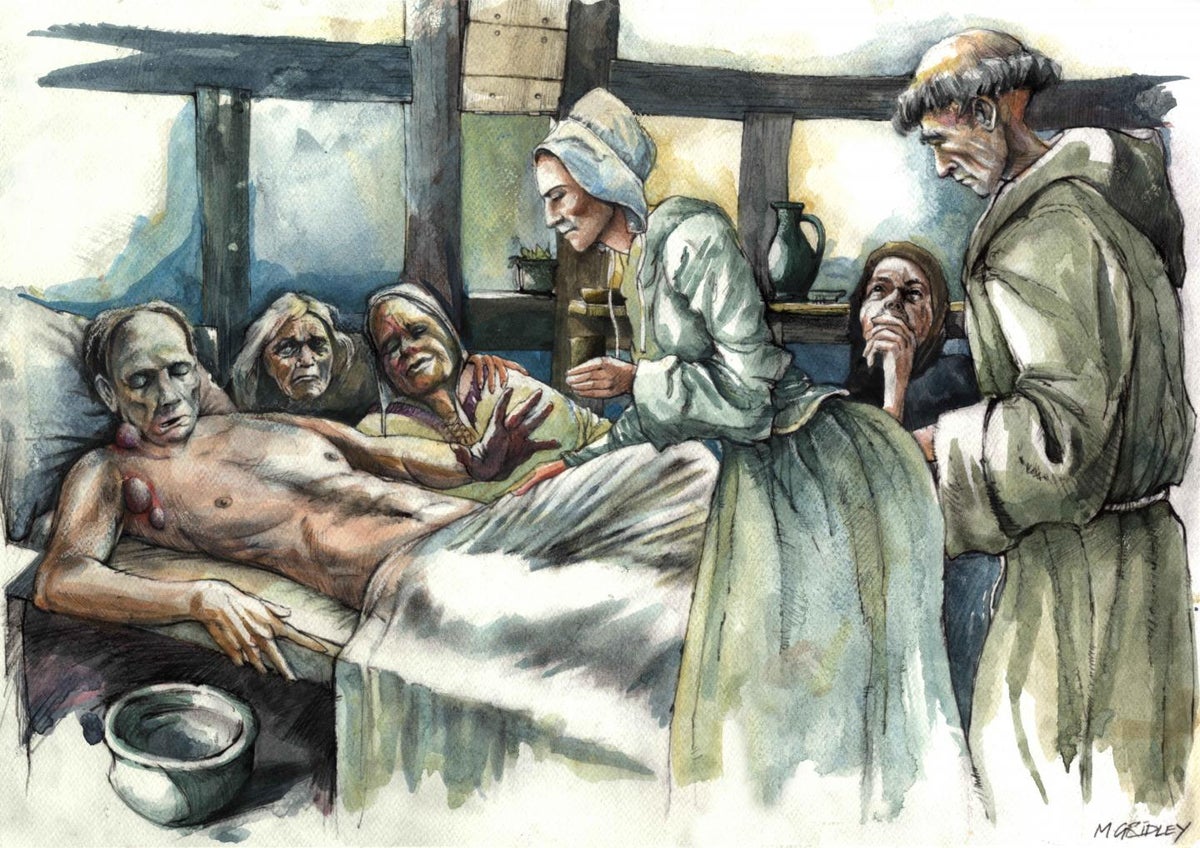There was no clear explanation as to how the pandemic originated, despite its vast demographic and societal impacts.
Mainly affecting Afro-Eurasia in the years of 1346-1353, the origins of the Black Death, or the Bubonic Plague, can now be traced back to Central Asia based on the ancient Yersinia pestis genomes that have been obtained and studied.
Overview
The plague arrived in the Mediterranean sea through ships from lands located in the Black Sea (in 1347). It then dispersed throughout Europe, north Africa, and the Middle East almost instantaneously, exterminating close to 60% of the society. This multi-national outbreak became known as the Black Death, and would turn into a pandemic that lasted for 500 years, until the turn of the 19th century.
Where did it originate?
The origins of this epidemic is not well-known. The most widespread theories suggest it originated in China, but this counters archaeological evidence, which traces the disease back to Central Asia, close to present-day Kyrgyzstan. These findings show that an epidemic ravaged a local community in the years of 1338-1339. Additionally, scientists who performed excavations about 140 years ago uncovered tombstones showing that people also died in those years of an unknown infection.
How do we know this indeed is the plague's origin?
Scientists have discovered that Kyrgyzstan's strains from the 14th century exactly match the time of the unknown infection. This means, the source of the Black Death has successfully been found, as well as its exact year (1338).
But, how did this strain come to be? Is it a local or imported disease? Plague originally isn't a human disease. Instead it is usually found in wild rodent populations worldwide, in "plague reservoirs." Therefore, the strain of this bacterium that affected Central Asia from 1338-1339 could have come from one of these reservoirs.
"We found that modern strains most closely related to the ancient strain are today found in plague reservoirs around the Tian Shan mountains, so very close to where the ancient strains were found. This points to an origin of Black Death's ancestor in Central Asia," describes the study's senior author & Max Planck Institute for Evolutionary Anthropology's director Johannes Krause.
So?
This study is proof that partnership and collaboration among geneticists, historians, and archaeologists can lead to the closing of gaps in the understanding of past historical events, such as the origins of the notorious Black Death, with expert detail.
Sources:
ScienceDaily. (2022, June 15). Origins of the black death identified. ScienceDaily. Retrieved September 2, 2022, from https://www.sciencedaily.com/releases/2022/06/220615113242.htm
HeritageDaily. (2021, August 26). Plague in medieval Cambridge. HeritageDaily. Retrieved September 2, 2022, from https://www.heritagedaily.com/2021/06/plague-in-medieval-cambridge/139494
The Black Death, globalization, and the world today. Origins. (1970, June 1). Retrieved September 2, 2022, from https://origins.osu.edu/connecting-history/covid-black-death-plague-lessons?language_content_entity=en


Comments
Post a Comment